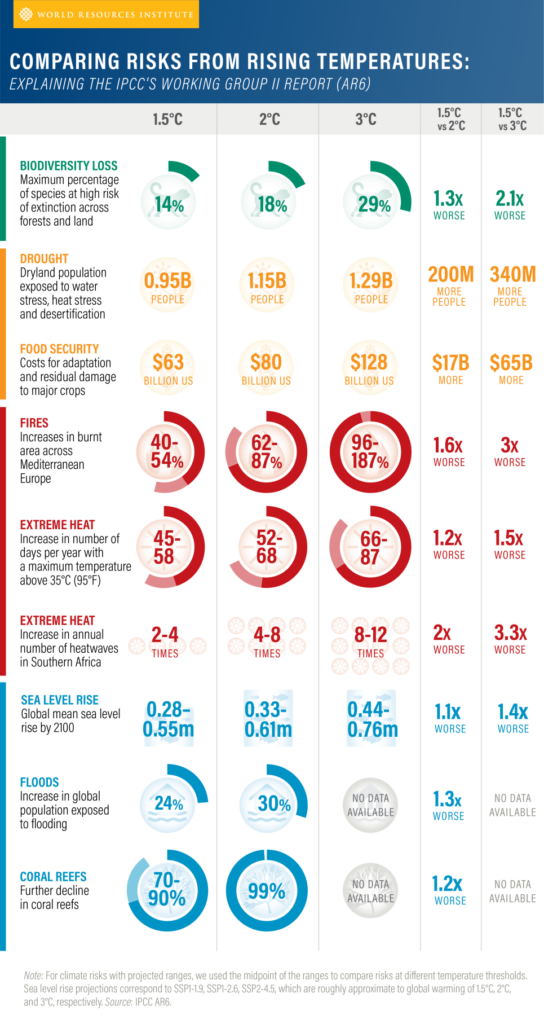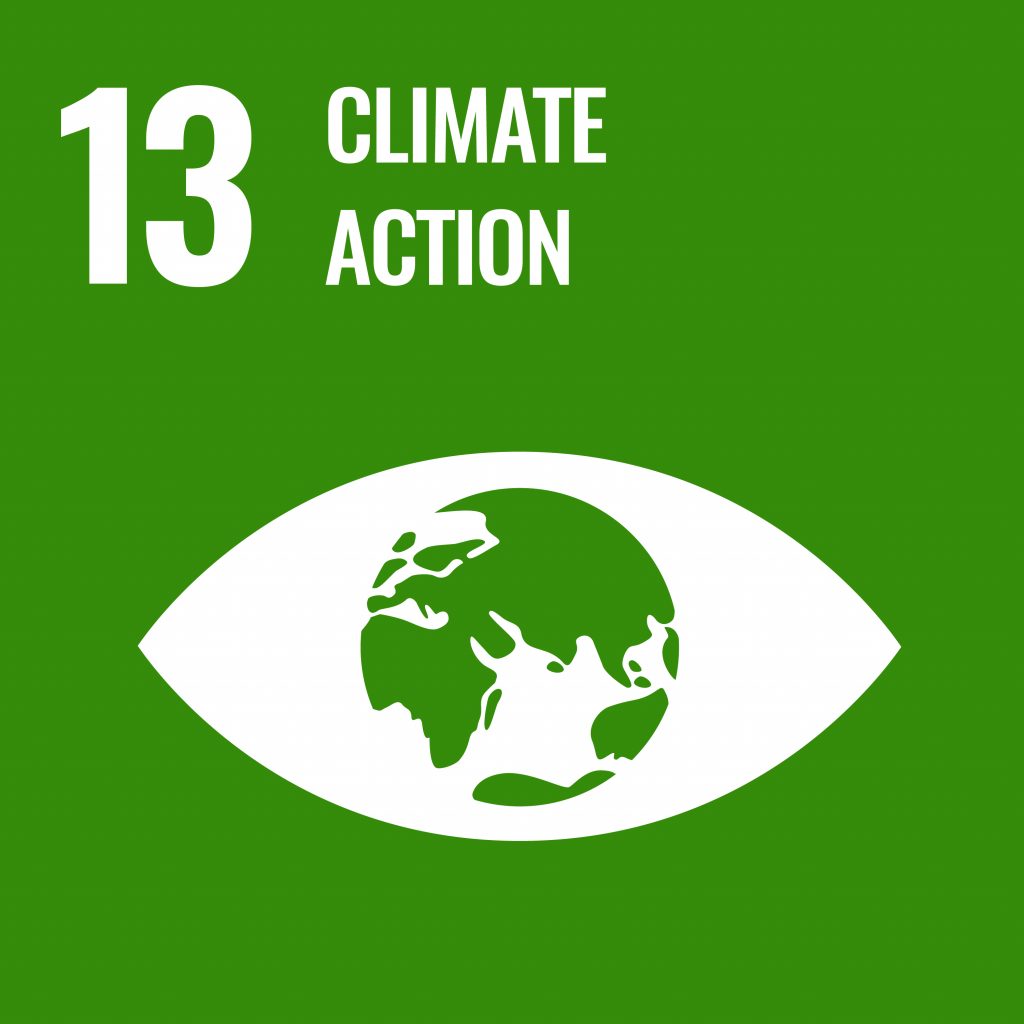Our crucial next steps for change- what did the IPCC report say?
Introduction
On March 20th 2023, the last Intergovernmental Panel on Climate Change (IPCC) report was published. I waited a while to publish this blog so I could gather my thoughts and listen to the public response before sharing. The IPCC are a United Nations (UN) body that pull together all the latest climate science into a condensed format for governments, primarily, the media and others to make sense of. They use a multi-year assessment cycle of around 8-10 years, with 4 reports published during each cycle. The order of the reports are: Climate science, impacts and how we adapt, mitigation and how to avoid the worst impacts, and finally the one we are discussing today: a summary report.
This IPCC report is one of the most important indicators for informing world leaders at COPs. You can find out what happened at the last COP (27) from our blog last year.
It’s so important to state here that this report will more than likely be the last IPCC report to come out prior to the end of this decade, highlighting how crucial it is that action is taken from the report. It does seem that this really is our last chance before it’s too late to avoid the worst impacts.
So, what does the report actually say?
To begin, the summary report for policy makers discusses the current scientific state, in terms of observed changes and its causes and impacts.
This image (below) highlights how we know that climate change has already caused widespread impacts, and associated losses and damages. These observed impacts are the result of human activities and the emissions of greenhouse gases, with the global surface temperature recorded in 2011-2020 at 1.1°C above the temperature during 1850-1900.

The listed contributors to greenhouse gas emissions are “unsustainable energy use, land use and land-use change, lifestyles and patterns of consumption and production across regions, between and within countries, and among individuals.”
The resultant impacts of these greenhouse gas emissions are already underway, and affecting weather and climate extremes all over the world.
Losses and Damages
This refers to the losses and damages that we are experiencing right now, along with all those that will be faced in the future. Every 0.5°C of global temperature rise will clearly increase the frequency of extreme weather events, such as heavy rainfall events, droughts, and heat extremes. Rising temperatures also increases the likelihood of us reaching dangerous tipping points in the climate system. These can trigger events such as thawing permafrost (permanently frozen ground that releases previously stored carbon dioxide and methane when thawed) which further increases warming. Another example of this is forest fires.
Overshooting the 1.5°C target, even temporarily, will result in much more severe and irreversible impacts, such as local species extinctions and extensive human life loss. See below an infographic from the IPCC’s working group II report looking at risks compared to temperature rise:

It is essential to remember when discussing this that the most vulnerable people and ecosystems are affected the most.
“Almost half of the world’s population lives in regions that are highly vulnerable to climate change. In the last decade, deaths from floods, droughts and storms were 15 times higher in highly vulnerable regions.“
Aditi Mukherji, one of the 98 authors of the Synthesis Report to close the IPCC’s sixth assessment.
Climate justice is a term you have more than likely heard by now, and for good reason. So what do we mean by this?
- A human rights base approach needs to be taken with climate action.
- Take a people-centred approach to climate action.
- The understanding that not everyone has contributed to climate change in the same way.
- To combat social, gender, economic, intergenerational, and environmental injustices, and acknowledge the intersectionality of these challenges.
- Take a systems based transformation to address the root of the problem- climate crisis is the result of a system which focuses on profit instead of sustainability.
This is crucial, as those who have contributed the least to climate change are being the most heavily and disproportionately affected.
You can read more about climate justice in our blog from 2020.
What action should come out of this?
On a basic level, we need action, and a lot of it, to adapt to climate change whilst mitigating by reducing our emissions by almost half by 2030 if warming is to be limited to 1.5°C.
We’ve broken down some key actions to help reduce emissions:
Governments:
- Every country needs to have a much more ambitious Climate Action Plan to eliminate emissions and take carbon out of the atmosphere. Crucially, everyone needs to also follow through on their plans. I’d also like to point out that this is especially necessary for wealthy countries who contribute the most to global emissions.
- A lot more funding needs to be put into all aspects of climate change. Investing more money into nature is needed, and governments must accept this.
- Here’s an interesting read on Canada’s new Climate Action Plan, and their proposal to work with nature to reduce emissions.
Fossil Fuels:
- Coal use must be phased out fully and fossil fuel use must be reduced. This is our primary focus and has to be addressed if we have a chance at limiting warming to 1.5°C.
Carbon Capture:
- Technology such as “carbon capture and storage (liquifying the carbon from power plants and storing it underground) and direct air capture (removing carbon from the atmosphere by chemical means) will likely be needed in order to ensure that any rise above 1.5C is only temporary.” (UNFCCC)
Of course, I have only touched on the topic here, so you can read the full summary report here.
A few points to note
It’s worth mentioning that every government in the world has agreed to the content of this report, which demonstrates that there is no doubt about its contents. The only thing we have to be aware of is what may not be in the reports due to political alterations during the approval stage.
What do I mean by this? Well, the summary report was produced for policy makers and is a lot, lot shorter than the full scientific report. This makes it more accessible and easier to digest of course, but it also means that not everything can be included. We may also see alterations in the language used in the summary report compared to the full scientific report. As mentioned, all governments had to agree to the contents of the summary report, which can result in some changes from the original due to political pressure and decisions.
We saw this happen within the 3rd IPCC report, where the draft summary for policy makers referred to the need to “actively phase out fossil fuels”. After the political interference, the wording in the summary became “transition away from fossil fuels to lower carbon energy sources, such as renewables and fossil fuels with carbon capture and storage”. This is a huge alteration from what the scientists recommended in the draft, and I wanted to point this out for consideration when reading the updated summary report.
But, what have policies already achieved?
This whole blog has quite possibly been pretty overwhelming, so I want to reassure you that climate policy is already working. It’s easy to think that all these years of negotiations and deals have achieved nothing due to the emergency that we currently face. However, the latest report states that several billion tonnes of CO2 emissions per year have been avoided due to previous mitigation policies for energy efficiency, reducing deforestation, and technology deployment. This is a positive sign that we are beginning to shift towards decarbonisation! I’m not saying that we have made enough progress, as we haven’t by any stretch of the term, but it’s important to remember that we have made a start. Every action counts.

This article is in support of the United Nations Sustainable Development Goal 13: Climate Action. To read more click here.
Sustainably Speaking
Loughborough University Sustainability Blog